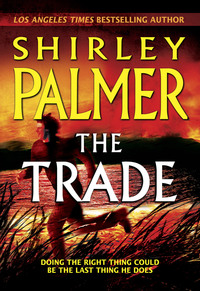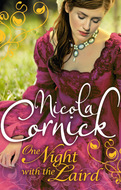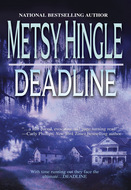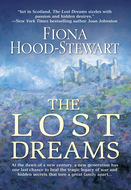Kitap dosya olarak indirilemez ancak uygulamamız üzerinden veya online olarak web sitemizden okunabilir.
Kitabı oku: «The Trade», sayfa 3
CHAPTER 5
7:00 a.m. on a Friday morning, and traffic on the I-10 from Santa Monica to downtown was moving steadily. In another hour, it would be gridlock. Matt listened to Coltrane, and restrained the impulse to jockey the Range Rover from lane to lane. He got off the freeway at 9th Street, and stopped to pick up a couple of caffe grandes at the Starbucks by Macy’s—he knew better than to risk the coffee on a construction job, which tasted as if it were made with iron filings, guaranteed to burn a hole in the lining of the stomach.
By 7:30 he was at the Contessa, four hundred low-rise luxury apartments on what used to be a used-car lot before the neighborhood got too run-down even for clunkers. Swimming pools, tennis courts, running track, gym, all the bells and whistles, heavily landscaped, an urban refuge, and close to major freeways and the Staples Center. The city was jubilant, already counting on the tax base to revitalize the surrounding area. Lowell Brothers was gambling the company shirt on the project, their first venture into new construction, but so far it looked good. Ned had negotiated leases with both teams that called the Staples Center home, NBA basketball and NHL hockey, the Lakers and the Kings.
Half a dozen trucks loaded with large boxed jacaranda trees were lined up on Bixel Street outside the Contessa. By the time the job was finished, a hundred prime specimens would be in the ground.
“Good morning, Ben.” Matt handed Ben Pressman, the landscape architect, a container of coffee, popped the lid on his own and took a sip. He and Ben circled the trucks, checking out the jacarandas.
“Pretty nice, huh?” Ben said.
“Yeah. Not bad, Ben.” He and Pressman had personally selected each one, shopping half a dozen tree farms to get what they wanted. “Let’s get them in the ground.”
He stayed on through the morning, ate enchiladas with the Hispanic work crew gathered around Roxanne’s Hot Lunch, the roach wagon that made the rounds of downtown construction sites.
It was almost four when he got back to the office in Brentwood.
Two men, flipping without much interest through magazines devoted to the construction business, looked up as he walked in. Matt raised an inquiring eyebrow at Marni behind her desk in the front office.
“These gentlemen are waiting to see you, Matt. They’re from the sheriff’s department.”
The men replaced the magazines on the table, got to their feet. The elder of the two said, “Mr. Lowell? I’m Detective Jim Barstow. My partner, Detective Eduardo Flores.”
Matt glanced at the proffered shields, noted the nicotine-stained fingers and the smell of tobacco that clung to the two men. He shook hands with each in turn, conscious of Marni’s ears straining to hear every word, and ushered them into the office. Ned, frowning at the computer screen on his own side of the partners’ desk, looked up as Matt introduced the detectives. They refused coffee. Matt settled himself behind his desk, indicated a couple of chairs on the other side.
“So, what can I do for you?”
“Just a few questions. You are the Matthew Lowell who found the child on the beach, is that right?” Barstow asked. Late forties, thinning fair hair, deep set blue eyes. Slim, sharp tailoring.
Not much got past him, Matt guessed. “Yes. During the fire.”
“That would be last Monday?”
“Yes. Monday.”
“She was alive when you found her?”
Matt nodded. “Yes.”
“About what time of day was that, Mr. Lowell?”
“Sometime between four and five. It’s hard to say exactly. The smoke from the fire was black and covered the entire sky, so it was dusk long before the sun started going down. And sunset these days is at five. So I can’t say for sure. I didn’t look at my watch.”
Barstow’s partner gave a half smile. He’d caught the sarcasm. Flores was in his early forties, bulky but not fat, an ungainly nose away from being darkly handsome.
“Well, that’s close enough for now,” Barstow said. “Were you working in Malibu on Monday?”
“No, I was here, but I’ve lived in Malibu all my life and I know how fast a brushfire moves in a Santa Ana wind. I had horses in Ramirez Canyon and was worried about getting them out. And my dog was locked inside my house.”
“That’s the house on Malibu Road?” Barstow asked. He produced a small notebook from the inside pocket on his jacket.
Matt nodded. “That’s right.”
“You say you found the baby several miles north of that location between four and five o’clock. By noon the entire area had been evacuated, the highway was closed in both directions from Topanga Canyon in the south, and Trancas Canyon in the north. How was it you managed to be on that particular part of the beach at that particular time? Can you explain that?”
“I drove—”
“Wait a minute,” Ned said. “What is this? An interrogation? He’s already reported this to—”
“It’s okay, Ned, let me handle it,” Matt said. He held a tight rein on his irritation. Ned could be a pain sometimes with his big brother concern. Ginn thought it was guilt because Ned had been at Wharton in Philadelphia when their mother was killed, and had gone back to school the day after she was buried, leaving Matt alone with their father in a house that contained only shadows where she had been.
“You’re right,” he said to Barstow. “The Pacific Coast Highway was closed when I got to Topanga Canyon.”
“What time was that?”
“About two, two-thirty.”
Barstow made a note on his pad. He looked up, nodded for Matt to continue.
“I turned around and went back to the Santa Monica Freeway, took the 405 north across the Sepulveda Pass to the 101 in the San Fernando Valley.” Deliberately, Matt went through every detail of the long circuitous route back to Malibu. “The 101 west was pretty clogged because of fire closures, but I was able to make it to Las Posas Road below Oxnard. I turned off there and drove toward the ocean through the berry fields and came down the PCH that way.”
Barstow flipped through the pages of his notebook.
“On your way down the PCH you had to pass Encinal Canyon, right?”
Matt felt his gut clench. “Yes.”
“Did you drive up into Encinal Canyon?”
“Of course not. I was trying to get home.”
“And the Pacific Coast Highway was already closed at Trancas Canyon when you got there?”
“That’s right. They were pretty busy in the market parking lot, getting a convoy together to go over the Kanan Dume Road while it was still open. It wasn’t difficult to drive around the roadblock.”
“What were you driving?”
“I had a pickup and a horse trailer.”
Flores spoke for the first time. “Do you usually commute to work here in Brentwood with a horse trailer, Mr. Lowell?”
“No. I picked it up at Malibu Riding Club on Pacific Coast Highway.”
“That’s just before Encinal Canyon, is that right?”
“Yes.” The enchiladas he’d eaten at lunch suddenly felt like a lead weight in his stomach. They thought he had used the trailer to transport the body of the dead girl.
“Why didn’t you take the Kanan Dume Road from the 101? Why go all the way up to Las Posas?”
“I wasn’t sure Kanan Dume was open. I didn’t want to run into another roadblock and have to turn back. I didn’t have that kind of time.”
“Are you saying that in the middle of a fire, an equestrian center loaned you a pickup and horse trailer? I would’ve thought they’d need vehicles like that to evacuate their own animals.”
“The truck and trailer didn’t belong to the riding club, they belonged to me. I boarded my horses there until a couple of weeks before the fire. I left some tack and the pickup and trailer there until I could pick them up.”
“Where are they now, this pickup and trailer?”
“At A-1 Auto Wrecking in Oxnard.”
Barstow raised his eyebrows. “What happened to them?”
Matt held on to his temper. What did this bozo think happened to them in the middle of a goddamn fire? “I was trying to get into Ramirez Canyon at Paradise Cove but the gates to the tunnel under the road were closed. The fire came through the tunnel, caught the trailer and pickup. I made a run for it to the Cove restaurant. The trailer and pickup are a total loss. I had to have them towed.”
Barstow continued making notes. “I see. What happened then?”
“I got some water from the restaurant, and started south along the beach. It’s about seven miles to my place from the Cove. I was more than halfway there, just past the Edwards estate, when I spotted what looked like a downed pelican lying near the water. I got closer, and saw it was a baby.”
“And the baby was alive when you picked it up?”
Matt had to force himself not to look away. “Yes. I thought I just said that.”
“No, you didn’t. So then?”
“I felt a faint pulse. I wrapped her in my shirt and went back to some stairs that I’d seen still standing. I thought maybe I could get some help there, but when I got back the stairs had burned and the wind had blown them apart, so I turned around and continued toward home.”
“It didn’t occur to you to go back to the restaurant?”
“Of course it did, but what for? Fire blocked the road, the restaurant was empty, no one was coming, no fire crews. Plus I was more than halfway home.”
“When did you realize she was dead?”
“When I got home. I put her on the couch. She seemed cold. I tried to feel a pulse and couldn’t. I tried to give her CPR, holding her nose and breathing into her mouth, but it was too late. She was dead.” He’d been reliving that moment over and over ever since.
“You’ve got a bandage on your arm, Mr. Lowell. What happened?” Flores asked this question. Matt guessed they were taking turns.
Instinctively, Matt looked down at his wrist. He’d dropped by his doctor’s office, Phil had put a couple of stitches in, and covered it with gauze and a Band-Aid. That was the day after the fire.
“I broke a window at the restaurant to get some water and I guess I cut it. I didn’t notice it until later.”
“You didn’t notice a cut that was bad enough to need stitches and bandaging?”
“A hell of a lot more was going on then than a cut on my arm, Detective Flores. Half of Malibu was on fire.”
Flores nodded and gave him that thin smile again. “So is that your blood on the blue shirt the baby was wrapped in?”
“Yes.”
“So why didn’t you get help for this baby right away?”
“Where? It was in the middle of a wildfire. The phones were down. I’d dropped my cell on the beach. Where was I supposed to find help?”
“You could’ve taken her to the Civic Center there in Malibu, couldn’t you?”
“She was already dead, and flames were coming over the ridge. What would have been the point of attempting that?” He wanted to ask if this guy had ever been caught in a firestorm, but the answer was obvious. He hadn’t.
“You’ve shown an interest in claiming this baby, Mr. Lowell. Why is that?” Barstow asked.
Out of his peripheral vision, Matt saw Ned open his mouth, then close it without speaking. He hadn’t told Ned what he intended.
“No reason. I just thought…I didn’t like the idea that she might be cut up for the purpose of training doctors.”
“Who told you that would happen?”
“Doesn’t it?”
Barstow shrugged. “A young woman was found yesterday morning on Encinal Canyon Road. It’s possible she was the mother.”
“Really?”
“You don’t sound too surprised. Did you know this girl?”
“Know her? No, I didn’t know her. I would’ve told you if I knew her. Look, I found a child on the beach in the middle of a wildfire. I did the best I could to keep her alive. I feel terrible that I wasn’t able to, but I got in touch with the authorities as soon as I could, which was around midnight. After I’d spent hours fighting to save my house. I thought it would be the right thing to do to give her a burial. Where are you going with this?”
Flores joined the conversation. “Why do you feel so threatened by these questions?”
“I don’t feel threatened, Mr. Flores.” Matt made a conscious effort to relax. Flores was right, he sounded defensive. “I just don’t understand why you’re talking to me about a young girl found dead in Encinal.”
“Well, the spot in Encinal is not too far from where you said you picked up the child on the beach. You’ve shown quite an interest in that baby. We’re just trying to do our job, get to the bottom of who knew what and when they knew it,” Flores said.
Matt held his eyes. They were a mid-brown, the sort of brown usually described as warm. But these were as cold as any Matt had seen, and the slight smile hovering around Flores’ tight lips didn’t help.
“Well,” he said, “if I can help you do that, of course I will. Anyway, are you sure the girl you found was the mother?”
Neither man responded. It was clear they were not here to answer questions, just ask them.
“Would you be willing to give a sample for DNA testing, Mr. Lowell?” Flores asked. “Just for the record.”
“Now wait a minute,” Ned said. “Just you guys wait a minute here—”
“It’s okay, Ned,” Matt said. He turned to Barstow. “Why are you asking me to do that?”
“There’s nothing to it, Mr. Lowell, nothing invasive,” Barstow said. “A swab, some saliva, that’s all.”
“You haven’t answered the question,” Ned said. “Is he suspected of some crime?”
“We don’t know that a crime has been committed, Mr. Lowell. This is just routine.”
Matt sat back and let Ned run with it. He’d seen Ned’s face and knew better than to start an argument with him in front of a couple of detectives.
“Routine, bullshit,” Ned said. “What happens to that sample afterward? It’s kept on record, right? So my brother, who has done absolutely nothing except behave like a model citizen, now has his DNA on record in a police file connected to some unknown girl’s death?”
Flores shook his head. “The sample will be destroyed.”
“Come on,” Ned said. “We’re supposed to trust the police department that screwed up the blood evidence in the O.J. Simpson case?”
Barstow turned to Matt. “We have your shirt, Mr. Lowell, and we don’t need your permission to test it.”
“Then why are you asking for saliva?”
“Well, cooperation would count in your favor—”
Ned was on his feet. “What are you talking about, in his favor? Is he being accused of something?”
“No. Well. Thank you, we’ll be in touch. If you remember anything else, give us a call.” Barstow produced a small leather cardholder, removed a business card and placed it on Matt’s desk. He glanced at Flores, and both detectives rose. “And we’re the sheriff’s department, not LAPD. Just so you know. Anyway, thanks for your time.” At the door, Barstow turned. “Your horses get out okay?”
“Yes, thanks,” Matt answered.
Barstow nodded and offered a polite smile. The two detectives left the room, leaving behind a faint trail of stale cigarette smoke, and the unspoken words hanging in the air.
They suspected him of murder.
CHAPTER 6
Matt turned off his laptop and pushed back from his desk in the corner of the living room. It was no good. He couldn’t work. It seemed as if he’d been going over the same set of drawings for the last three hours. All he could think of was the conversation with the detectives and the two creatures who’d somehow fallen into the middle of his life, the baby who had died in his arms, and the young girl who may or may not be the baby’s mother.
He got to his feet, poured another cup of coffee, his third that morning, took it to the window. Rays from the sun pierced the bottom of the mounting gray-and-white thunderclouds, and sparkled in large intermittent coins of light on the water. The temperature had dropped dramatically since the fire, and rain was in the forecast.
A flight of California brown pelicans swept low, wingtips skimming the top of the waves. Matt followed their glide with his eyes until they disappeared over the water. The pelicans were making a comeback after the DDT disaster in the seventies that had damn near wiped them out.
He picked up the phone, punched out the number for the animal shelter in Agoura, identified himself to the woman who answered, described his two horses, the small gentle Andalusian mare he’d bought for Ginn, his own buckskin quarterhorse gelding, and asked how soon he could pick them up.
“The sooner the better,” she said. “We’re like Noah’s ark over here. If you can tell me what time you’ll be here, I’ll have them brought in from the pasture.”
“I have to make a couple of calls, see if I can borrow a trailer. Probably be around one, is that okay?”
“Sure. See you then,” she said and hung up.
Margie Little’s place had been burned out, so he called the Malibu Riding Club, agreed to pay double the usual boarding fee—the stable manager made sure he was aware she was doing him a favor, that space was tight after the fire, and he had, after all, removed his horses from the club for no reason she had been able to fathom. But as a courtesy, he could leave his Range Rover at the club, use one of their trailers and a pickup to get his horses from Agoura. If he were still a member, she’d waive the rental fee, but since he wasn’t, of course, there would be a charge.
He loaded Barney into the Range Rover and took the Pacific Coast Highway north. The roadblocks at Topanga and Trancas had been removed, but traffic was still sparse. By tomorrow, if the rain held off, Sunday drivers would be out in force inspecting the damage—the chimneys still standing surrounded by rubble, the blackened beams from collapsed roofs, the burned-out armchairs and sofas that had once enclosed celebrity bottoms.
He slowed at the sign for Encinal Canyon Road. The girl’s body had been found less than a mile from the PCH. On impulse, he turned right onto the canyon road, a tortuous two-lane ribbon of asphalt that switchbacked across the Santa Monica Mountains down into the San Fernando Valley on the other side.
A quarter mile up the narrow gorge was a different world. The erratic wind-driven fire had skipped the entire lower canyon. Sycamores were still in fall yellows and russets, branching over the roadside tangle of willow and toyon and wild tobacco.
For Matt, the Santa Monica Mountains with their latticework of canyons and ravines were as much a part of Malibu as the ocean. When they were kids, he and Bobby Eckhart had camped all over these hills. They’d seen bobcats and mountain lions, rattlesnakes and redtailed hawks, even eagles soaring above bare rocky crags. They’d found traces of Chumash Indian pictographs in caves, and they knew where the virgin creeks were that ran all year, tumbling over rocks into pools deep enough to swim in. They’d also seen their share of abandoned vehicles and rusted-out discarded appliances. They’d never seen an abandoned body, but the canyons of Los Angeles were notorious for all kinds of murder and mayhem and they’d heard the stories.
Matt pulled into the clearing in front of the wide metal gates to the old archery range. According to Bobby, the dead teenager had been found about three hundred feet beyond this point.
He left Barney in the Range Rover—there was no shoulder to speak of, and the edge dropped off sharply on the creek side, dangerous if a vehicle hurtled around a curve, too many people used these mountain roads as raceways. Barney would be safer locked up. Matt crossed the road and walked toward a strip of yellow plastic police tape sagging between a couple of coastal oaks.
That was all there was to mark the place. There should be more, Matt thought. But what? Maybe crime scene tape’s as good as anything. Maybe it doesn’t really matter. But he couldn’t shake the barren feeling he had standing in this empty spot along the road.
On the ground at his feet he noticed a scattering of desiccated wildflowers. He knew them from Boy Scouts, yellow tree tobacco, white virgin’s bower, red California fuschia, purple rosemary. Bobby had told him the body had been covered in flowers. He sat on his heels, picked up a spray of canyon sunflower, held it to his nose, breathed in the faint scent. He twirled the spray gently in his fingers, then realized there was moisture on his skin. Sap from the stem.
The flowers in his hand were fresh. He looked around. The road was empty, quiet.
He stood and peered over the edge of the steep cliffside that fell off down to the creek. His eye caught a flash of blue. He squinted, made out a crouched form hidden in a tangle of toyon and manzanita.
“Hey!” he called. “Can I talk to you?”
The figure bolted upright, plunged through the brush in a wild crashing descent.
“Wait a minute.”
Matt started after him, grabbing branches, using his boot heels as a brake, half sliding, half running.
The flash of blue disappeared, reappeared and disappeared again. Part way down, another figure, long straight brown hair, broke cover and took off headlong down the hillside.
Girls, he thought. A couple of girls. He hit the canyon bottom, raced after the two of them toward the dry creek bed. They jumped from rock to rock, scrambled up the other bank.
Matt followed across the creek, leaping the same boulders. He stopped short as the figure in blue suddenly turned in a small clearing in front of a grove of wild walnut trees, blocking Matt’s way, teeth bared in a snarl, eyes blazing and wild. With a jolt, Matt realized he was looking at not a girl but a teenaged boy. He was an astonishing apparition in blue silk shirt, torn and soot stained, an open blue velvet vest, matching blue velvet pants, worn tight, the knees ripped. He’d armed himself with a long, heavy stick, and stood protectively in front of four young girls. They appeared to be no older than sixteen, and white, except for a black child who was maybe ten.
Matt held up his hands. “I’m sorry. I didn’t mean to frighten you. I’m not here to hurt you. I just want to talk to you.”
The boy lifted his chin, fixed fierce narrowed eyes on Matt. He was trembling, Matt saw, but not from fear. This kid would kill if he had the chance.
Matt looked at the girls huddled together under the walnut trees, a bizarre little group, dressed in a strange assortment of garments in brilliant parrot colors, green, yellow, scarlet. Torso-hugging, skinny strapped tops, silky loose-fitting pants. The fabric looked rich, heavy silk, torn and stained. Their feet were clad in matching soft leather boots. They could have been a circus troop still in costume.
“What are you doing here?” They were sure not on a camping trip, not in that gear. They all had sun-damaged skin, huge welts on arms and chests caused by the poison oak that grew all over these mountains. Their lips were dry, cracked and bleeding.
He looked at each girl in turn. Their faces were filthy with mud and ash, their bodies shivering in the cool air of the canyon, even cooler on a day like this with rain clouds hanging low. They looked traumatized. No one spoke.
“Okay, you don’t have to talk to me. But you’re going to have to talk to someone. A girl was found up on the road. Did you know her?”
His questions were greeted with silence.
“Who are you? How long have you been here in the canyon?”
Every eye was locked on Matt, watching his every move, the girls looking as if they were ready to run. Or maybe fight. They stared at him, no glimmer of understanding in their eyes. They either didn’t understand English, or they were deaf. Matt touched his fingers to his cheeks and arms, made small circling motions and then pointed to the group’s faces and bare arms.
“Poison oak,” he said slowly. “You need to have that treated. I’ve got salve in my car. And water, you look like you need some water.” No one moved and Matt said, “Look, I want to help. Why are you here?” He looked around at the canyon. “You shouldn’t be here dressed like that. The weather is going to change, it’s going to rain and turn colder.”
One of the girls started to cry. She appeared to be the oldest, the longhaired girl he’d been chasing.
Matt took off his denim jacket, held it out to her.
“Come on, you need it. It will protect you.” He patted his own shoulders to show her what he meant.
The girl moved to reach for it. The boy spoke sharply.
In spite of her distress, the girl responded just as sharply. Nothing wrong with their hearing, Matt thought. For a moment, they argued in a language he had never heard before.
The girl accepted the jacket and said something to him. Matt thought she was asking a question. It could be English, but the accent was so heavy he couldn’t make it out.
He shook his head. “I’m sorry. Please, speak slowly.” He watched her lips. It sounded as if she were saying “eye eeder.”
“Eye eeder.” Her voice broke on a sob. “Eye eeder.” The boy yelled at her. The other three girls started to cry.
“Eye eeder?” Matt started to shake his head, then realized she was saying a name. Matt gestured toward her. “Your name is Aida?”
She shook her head.
“She was the girl on the road?”
In a soft voice, she answered, “Yes.”
Her eyes darted toward the boy. Screaming, he lunged at her, the heavy stick raised. Matt grabbed him before he could strike, shook the menacing club out of his hand, spun him around so that the boy’s back was against his chest. Holding him was like trying to control an octopus, limbs everywhere. The kid was frantic, explosive, strong beyond his slight frame. It took a few minutes before Matt was able to pin both arms to his sides and swing him off his feet. Gradually the boy stopped struggling.
“Listen,” Matt said against his ear. “I’m not going to hurt you, any of you. A girl died. Tell me how she died.”
“You bring police,” the boy said.
He could speak English. Now maybe they could get somewhere. “No one’s going to bring in the police, so you just relax, all right?” The boy said nothing. “Okay?” Matt said again. “I’m going to let you down now. Just stay quiet, nothing is going to happen to you.”
It was a long time coming but finally the boy nodded. Carefully Matt allowed the boy’s feet to touch the ground and as soon as he thought the kid would stay put, released him. The boy turned quickly. Tears of rage wet his eyes.
“You’re a good man,” Matt said. “You’re okay. What is your name?”
The boy clenched his lips together as if to prevent Matt from seeing that they were trembling.
“Hasan.” The older girl answered for him, and the boy spat what sounded like a curse.
Matt looked at him in surprise. The Arabs Matt had met or seen were dark-eyed, dark-haired, olive-skinned. This Arabic boy was blue-eyed, had dark blond hair, neat small features. Matt kept his eyes on the boy. “That’s you? Hasan?”
The boy did not answer.
“Okay,” Matt said. “Hasan. Good. And Aida was the girl who died. How did Aida die?”
No answer.
He tried a different question. “Where do you come from?”
The older girl said an indecipherable word. She pointed to herself and the two other white girls. She repeated the word. Matt still couldn’t understand her.
Matt looked more closely at the little black girl. “What about you?” he asked gently. “Where do you come from?”
The child refused to meet his eyes, and the older girl, the only one who had so far spoken, put an arm around her protectively.
“Africa,” she said. “She from Africa.”








